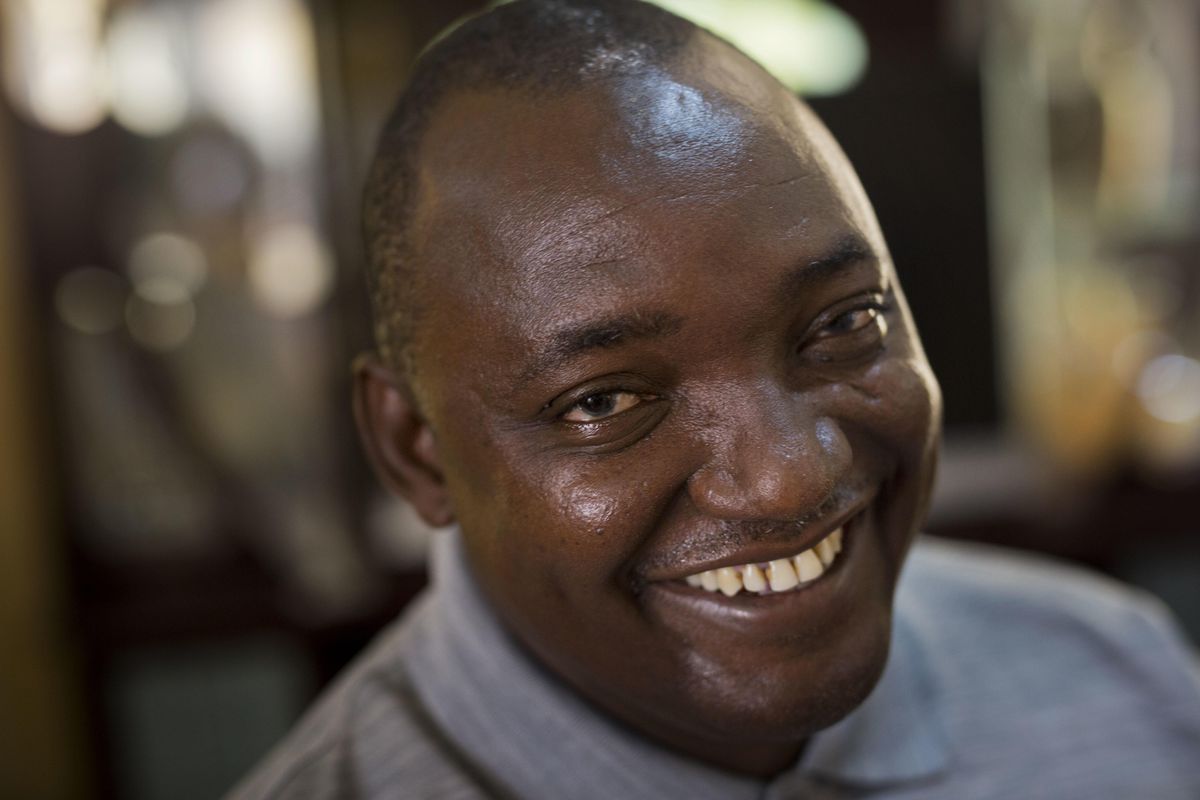Gambia president-elect set for inauguration in Senegal

DAKAR, Senegal – Gambia’s president-elect was set to be sworn into office at the Gambian embassy in neighboring Senegal on Thursday, while an official close to longtime leader Yahya Jammeh said loyalists would resist a West African regional force if it tried to arrest him.
The multinational force was poised on Gambia’s border as pressure grew on Jammeh to go. A Nigerian air force official, speaking on condition of anonymity because they were not authorized to speak to reporters, said Thursday evening that the troops were on standby.
“If he wants to remain in office after today, s—- will fall like rain over him from the sky,” the Nigerian official said.
The inauguration of Adama Barrow was taking place at 4 p.m. in Gambia’s embassy in Senegal’s capital, Dakar. Senegalese police lined the embassy entrance. Large screens were being placed outside to allow viewing of the ceremony, which was being attended by Senegal’s president.
Jammeh was at his official residence, State House, in Gambia’s capital and intended to stay there, said an official close to the administration who was not authorized to speak to reporters. If the regional force is going to arrest Jammeh, it will have to be there, he said.
Many of Jammeh’s loyalists at State House will resist, the official added. But Gambia’s army, estimated at well below 5,000 troops, is divided over its loyalties to Jammeh, and those not sympathetic to him will not leave until they are invited by the new government, the official said.
The U.N. Security Council was set to vote Thursday on a draft resolution endorsing the West African regional force’s “all necessary measures” to remove Jammeh.
Barrow won the December election, defeating Jammeh, who came to power in a coup in 1994. Jammeh initially conceded defeat but then changed his mind and said he would not accept the results, saying the election was marred by irregularities.
Jammeh has resisted strong international pressure for him to step down. His mandate expired at midnight.
African nations began stepping away from Jammeh, with Botswana announcing it no longer recognized him as Gambia’s president. His refusal to hand over power “undermines the ongoing efforts to consolidate democracy and good governance” in Gambia and Africa in general, it said.
The African Union earlier announced that the continental body would no longer recognize Jammeh once his mandate expired.
The U.S. Embassy in Dakar issued a warning to embassy personnel to stay at least 50 miles (80 kilometers) from the Senegal-Gambia border and to avoid military bases until at least Jan. 26.
The streets of the capital, Banjul were quiet Thursday, with few cars and scattered groups of men gathered on roadsides chatting under trees. Shops were closed and gasoline petrol was in short supply. Few tourists remained in the resorts.
Jammeh declared a state of emergency this week, but there were no signs of military activity. Fewer checkpoints were seen.
Thousands of Gambians have fled the country, including some former cabinet members who resigned in recent days. Hundreds of foreign tourists, including many from Britain and the Netherlands, were evacuated on special charter flights.
In Banjul, many residents said they are waiting for news of Barrow’s inauguration.
“We are behind Barrow. We are not scared,” said taxi driver Boto Sane. “When we hear that everyone can go out (to celebrate safely), that he has returned, we will. For now we are calm.”
Another resident said the regional forces would be welcomed if it leads to peace.
“We like that they are coming,” said taxi driver Tata Saidy. “We are waiting to hear that now, at this moment, the president is Barrow.”